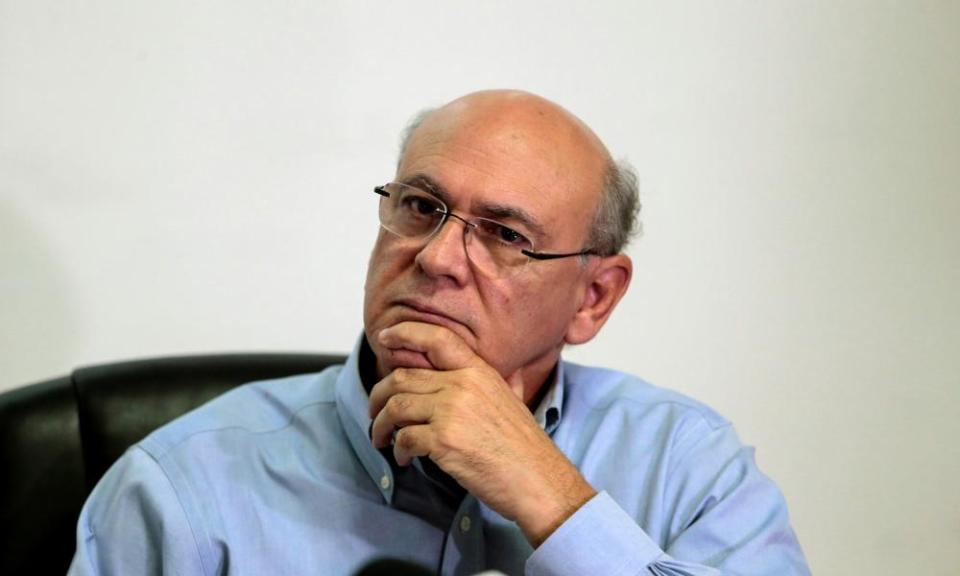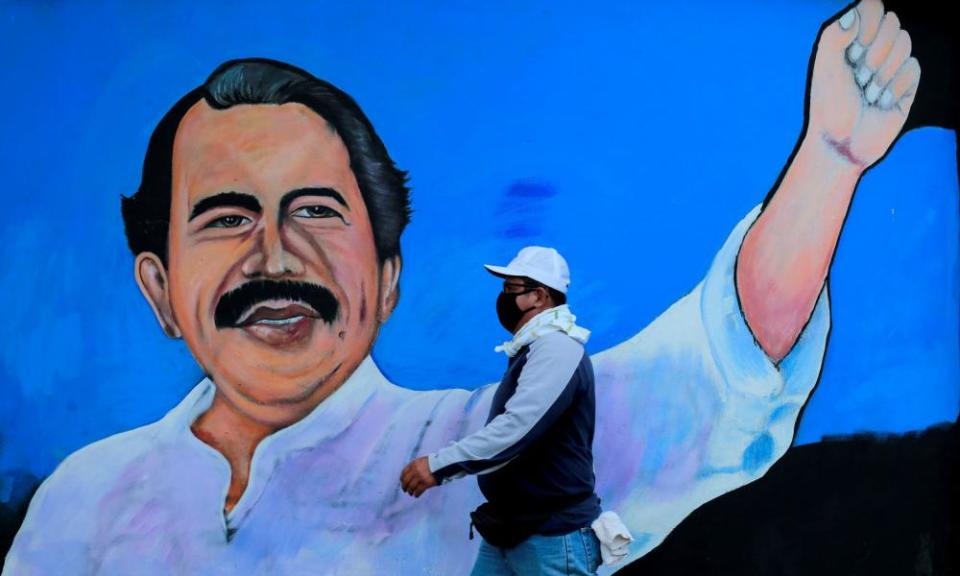Top Nicaraguan journalist flees country amid escalating crackdown

Nicaragua’s most prominent journalist has fled the country for a second time after police raided his house during a widening crackdown on opposition figures by the country’s Sandinista rulers.
Carlos Fernando Chamorro, the editor of the Confidencial website and a member of one of the country’s most influential political families, said on Tuesday he had left the Central American country to “safeguard his freedom”.
“I demand an end to this police harassment,” Chamorro tweeted. “Reporting the truth is not a crime.”
Related: Nicaragua rounds up president’s critics in sweeping pre-election crackdown
Nineteen people, including Chamorro’s sister and four other potential candidates in November’s presidential elections, have been arrested in what the US state department has called a “campaign of terror”, as President Daniel Ortega systematically clears the field of potential challengers.
Many of the detainees have been held under sweeping legislation granting the government the power to classify citizens as “traitors to the homeland”.
Two other prominent media figures were detained over alleged crimes against the state. Miguel Mora – the former director of the 100% Noticias news outlet who stood down last year to run for president – was arrested on Sunday night, hours before Miguel Mendoza, a sports reporter and former political prisoner.
Police also said they had put former first lady María Fernanda Flores Lanzas, wife of ex-President Arnoldo Aleman, under house arrest for alleged crimes against the state.
“High-profile arrests and other serious human rights violations against critics appear to be part of a broader strategy to eliminate political competition, stifle dissent and pave the way for President Daniel Ortega’s re-election to a fourth consecutive term,” Human Rights Watch said.
Michelle Bachelet, the UN human rights chief, described the arrests as “arbitrary” and said on Tuesday that the human rights situation in Nicaragua was deteriorating rapidly.
“This makes it unlikely that Nicaraguans will be able to fully exercise their political rights in the elections,” she told the UN human rights council in Geneva.

The current wave of arrests began with the detention of Chamorro’s sister Cristiana, who was widely seen as the leading candidate to beat Ortega in November’s election.
Neither of the siblings has been charged, although officials say both are under investigation for financial irregularities.
But the family represents a history of political and personal opposition to Ortega, who is seeking his fourth consecutive term in office.
In 1990, their mother, Violeta Barrios de Chamorro, defeated Ortega to become the first non-Sandinista president after the 1979 revolution.
Ortega was returned to power in 2006 and oversaw changes to electoral rules allowing him to run for repeated re-election. After an unprecedented outbreak of political unrest in 2018, police raided the offices of Confidencial, and the following year, Carlos Fernando Chamorro went into exile in Costa Rica for 11 months. He returned in 2020, but Confidencial’s offices were raided once again earlier this year.
“Daniel Ortega twice shut down the Confidencial newsroom. Now the police are raiding my house,” Chamorro tweeted on Monday. “They won’t silence journalism.”
Pedro Vaca, the rapporteur for freedom of expression at the InterAmerican Commission for Human Rights, condemned the crackdown. “The darkness in which the regime operates fears the light of independent journalism,” he said.

 money
money 